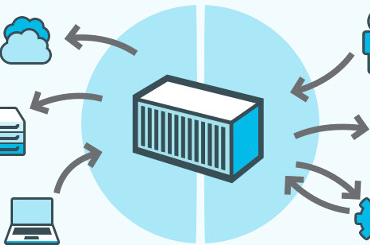Google ‘Clarifies’ Position on Docker, Promotes Choice

Google moved this week to quell industry concerns that it was throwing its considerable weight behind an alternative application container format by reiterating support for Docker and noting that it has "invested heavily" in the container technology.
In a blog post this week, Craig McLuckie, Google's group product manager, acknowledged a "surprising amount of buzz" surrounding Google's recent announcement that its Kubernetes cluster manager would support the Application Container Spec format (appc) and the rkt container runtime promoted by CoreOS.
"Many have taken it as signal that Google is moving away from supporting Docker," said McLuckie, who is also co-founder of the Kubernetes project. Not so, he continued. "Our intent with our announcement for appc and rkt support was to establish Kubernetes (our open source project) as a neutral ground in the world of containers.
"Customers should be able to pick their container runtime and format based solely on its technical merits, and we do see appc as offering some legitimate potential merits as the technology matures," the Google executive added. "Somehow this was misconstrued as an ‘a vs b’ selection which is simply untrue."
McLuckie argued the alternate format and runtime provide another option, "and it is perfectly natural that different tools should be available for different purposes."
He also noted that Google "de-emphasized" its own open-source container offering while shifting its focus to Docker. Moreover, Google engineers help maintain parts of the Docker code ecosystem and support efforts to add new features and capabilities to Docker. It is also the only runtime supported in the Google Container Engine, GKE, (Google's commercial container product) and its platform-as-a-service offering, Google App Engine, McLuckie noted.
While stressing that Docker remains by far the most widely used container technology, with an estimated 400 million downloads, McLuckie said Google "may introduce appc support at some point in the future to GKE based on our customer demand."
Responding to growing support for the CoreOS container initiatives, Red Hat recently warned of "fragmentation" in the open-source container community. While it "engages in many upstream communities" working on Linux container technologies, Red Hat noted that "this engagement should not imply full support, or that we consider appc or rkt ready for enterprise IT, or that the specification will ever be considered 'enterprise-ready'."
At issue are differing visions of how the application container infrastructure should evolve. While Red Hat , Google and many others are backing the Docker format, upstart CoreOS is actively promoting a container alternative called Rocket it claims is closer to the original vision of a simple, compatible container environment for Linux platforms.
CoreOS said the recent endorsement of its approach includes integration of rkt as a configurable container runtime in Kubernetes clusters.
One thing all sides appear to agree on is that the Kubernetes framework ought to be the standard for orchestration of multi-container applications. It was open-sourced in July 2014. The latest version of the open source container cluster orchestration was released on May 15.
Related
George Leopold has written about science and technology for more than 30 years, focusing on electronics and aerospace technology. He previously served as executive editor of Electronic Engineering Times. Leopold is the author of "Calculated Risk: The Supersonic Life and Times of Gus Grissom" (Purdue University Press, 2016).












